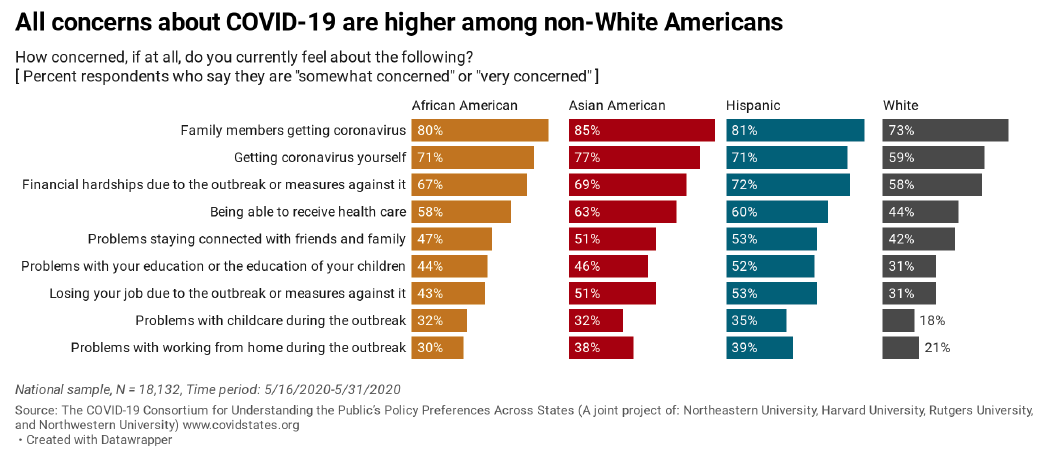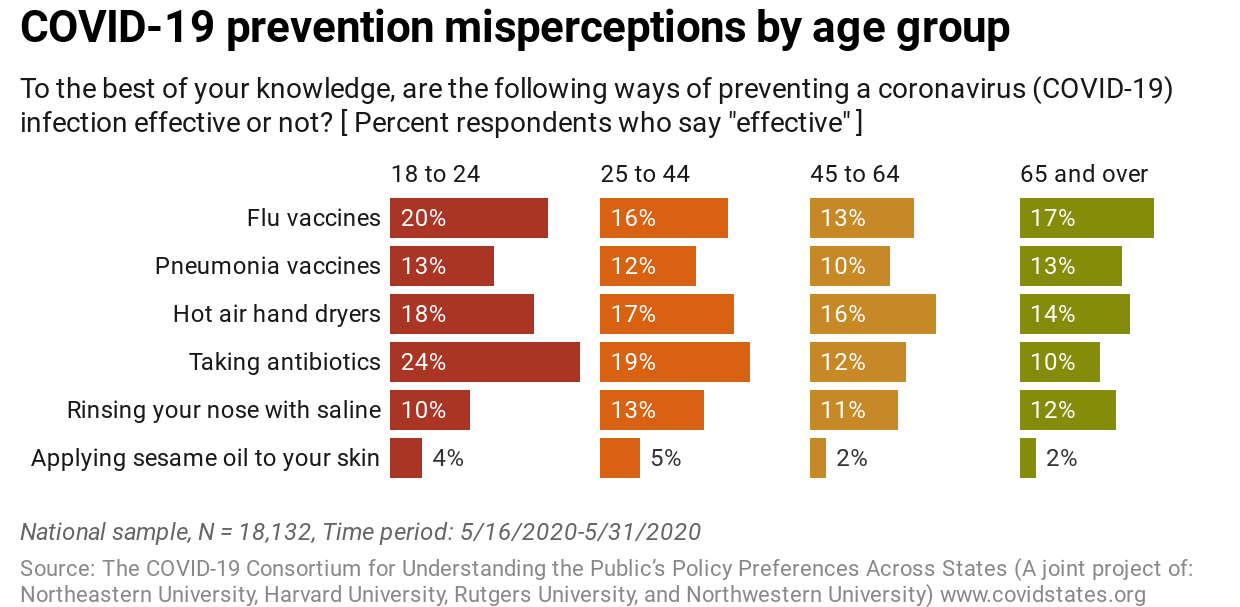The COVID-19 Consortium for Understanding the Public’s Policy Preferences Across States’ latest survey results show decreasing trust in government institutions and the police to handle the COVID-19 outbreak, and increasing partisan divides in opinions about the response. In a new feature of the survey, they found that misperceptions about how COVID-19 spreads and can be mitigated are fairly widespread, and belief in them varies by age, population, and party affiliation.
And find interactive versions of the report charts, and all of the state-by-state data tables from the survey at CovidStates.org.
Television news and social networks (both personal and digital) remain the top sources that people cite for information about the pandemic. Amongst cable news watchers, partisan divides remain consistent about which networks they choose to tune into.
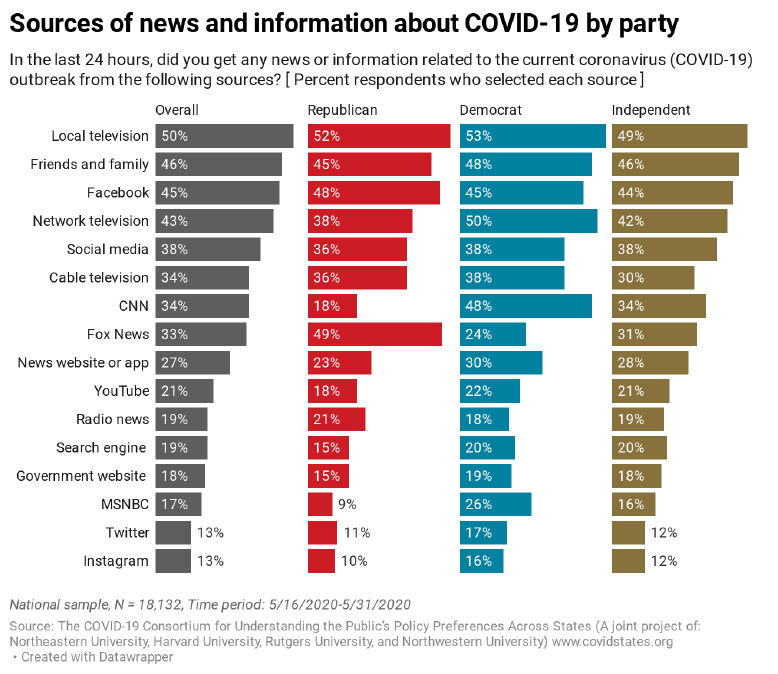
Between late April and late May trust in most individuals and institutions dropped. The most significant changes were in people reporting trust in the police (down 7 percentage points), state governments (down 6 percentage points), and President Trump (also down 6 percentage points). The steep decline in trust in the police corresponded with George Floyd’s killing and the beginning of mass protests across the country against police violence.
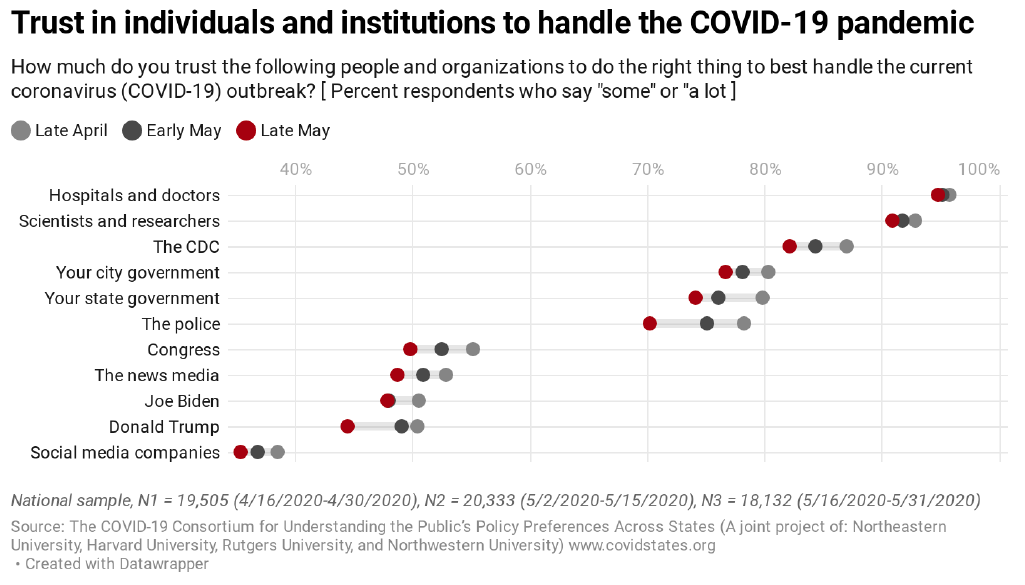
41% of respondents said they believe “Most or all” of the information they read about the COVID-19 pandemic. Amongst that group, adherence to public health recommendations is significantly higher than amongst people who said they believe “some” or “none/very little” of the information they see.
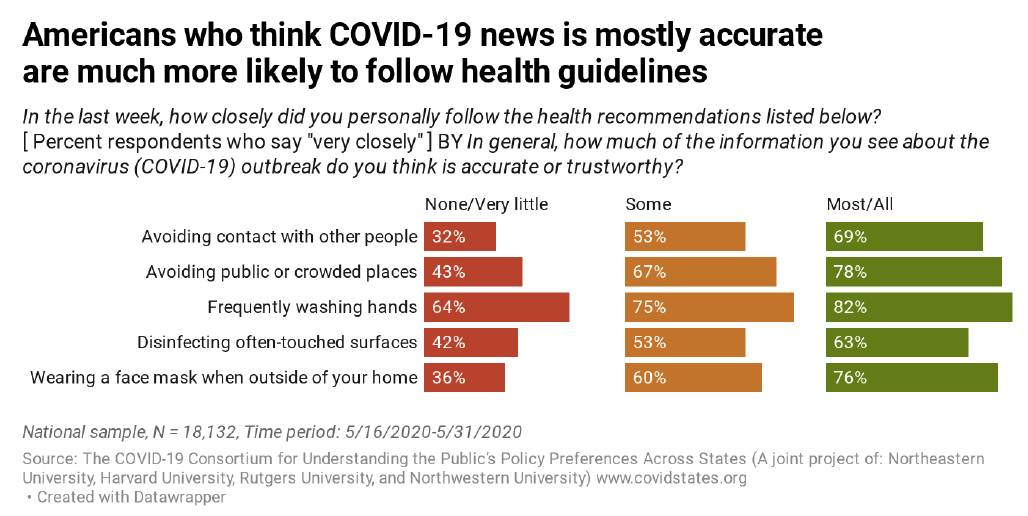
When asked about different false statements or misperceptions being spread about COVID-19, no more than one-fifth of respondents said they believed any of the statements were accurate. The most commonly-believed false statement was that only people over the age of 60 are at risk. There was significant confusion or uncertainty about some false statements, including about the sources of the virus, and whether or not the President had talked about planning to declare martial law.
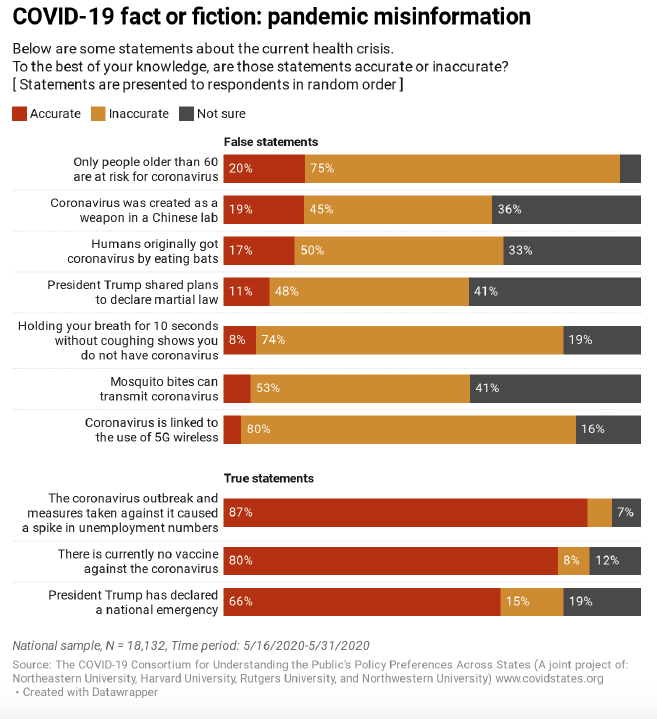
Members of communities that have already been hit hard by the virus were more likely to have been exposed to misinformation about the pandemic, and stated that they believed it. People who identified themselves as African American, Asian American, or Hispanic were also more likely to say they were concerned about all aspects of the pandemic’s impacts than White Americans.
